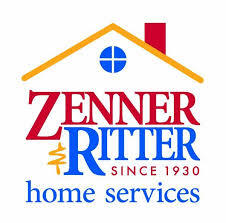How Refrigerant Regulations Changed for 2025

The HVAC industry is experiencing significant transformations in 2025, with new refrigerant regulations set to reshape how we think about cooling and heating our homes and businesses. These regulations are designed to reduce the environmental impact of HVAC systems, improve energy efficiency, and address climate change by phasing out older refrigerants with high global warming potential (GWP).
For homeowners and businesses alike, understanding these changes is crucial to preparing for updates to both existing HVAC systems and new installations. At Zenner & Ritter, we’re committed to helping our customers navigate these regulations. Whether you’re considering a new air conditioning installation in 2025 or you’ve recently had your HVAC equipment replaced, here’s what you need to know about the impact of these new laws.
An Overview of 2025’s Refrigerant Regulation Changes
Under the 2020 American Innovation and Manufacturing Act (AIM), the Environmental Protection Agency (EPA) is leading the charge to reduce greenhouse gas emissions and protect the ozone layer. These new regulations aim to achieve this goal by promoting refrigerants that have a lower global warming potential (GWP). Here’s a general overview of what’s changing:
Transition to Low-GWP Refrigerants
Historically, refrigerants have caused ozone depletion and other negative consequences. However, starting in 2025, equipment manufacturers must switch to an alternate refrigerant with a GWP of 700 or less. New refrigerants like R-454B or R-32 will ultimately replace previously used refrigerants.
One factor worth mentioning is that R-454B, R-32, and some other environmentally friendly refrigerants are classified as A2L, meaning that they’re mildly flammable.
While the use of A2L refrigerants does necessitate additional contractor training and precautions, the team of professionals at Zenner & Ritter is ready for the change. HVAC equipment manufacturers have developed new technologies and safety features to make sure that these lower global warming potential refrigerants can be used without compromising reliability or performance.
Changing HVAC Industry Standards
HVAC manufacturers are adapting to these changes by designing new equipment that can handle low-GWP refrigerants safely and efficiently. Starting in 2025, all new HVAC systems will include updated refrigerant lines, advanced safety equipment to reduce the danger of a refrigerant leak, and many other features that have a positive impact on both the environment and your home.
Impact on Existing Systems
Does your air conditioning system or heat pump use an older refrigerant that has a higher GWP? Regular maintenance is more important than ever. A well-maintained system is less likely to develop leaks or performance issues that could lead to refrigerant repairs. While older refrigerants are still available from manufacturers, the supply has been greatly reduced, and it is possible that there will be shortages in the future. Keeping your system in top shape now can help you avoid headaches down the road.
FAQs About 2025 Refrigerant Regulations
Do the regulation changes mean that I have to buy a new HVAC system?
Many homeowners are wondering whether the introduction of new refrigerants means they need to replace their current system. The short answer is no; you don’t need to rush out and buy a new system right away.
Existing air conditioning units, furnaces, and other current HVAC systems will be usable for the foreseeable future. However, remember that as production of R-410A decreases, both the cost of repairs and refrigerant refills may rise. Labor costs for repairing R-410A equipment may also increase.
Are the new refrigerants safe?
Yes! While many environmentally friendly refrigerants, such as R-454B and R-32, do have an A2L classification, they pose no greater risk than everyday household products. In fact, there’s a strong likelihood you’re already using these new refrigerants in modern vehicles and portable air conditioners.
How can I ensure my existing HVAC system lasts as long as possible?
Proactive maintenance is key to extending the life of your equipment. Regular checks can help identify HVAC refrigerant leaks and prevent frequent repairs, which will become increasingly costly as older refrigerants are phased out.
What are my options for a new HVAC system?
Investing in a new system guarantees compliance with environmental regulations and positions you to take advantage of energy-efficient systems and new technologies. Variable refrigerant flow (VRF) systems and heat pumps are excellent options for those seeking advanced energy efficiency and reduced environmental impact. Relying on R-454B and other new refrigerants dramatically lowers your utility bills while reducing your carbon footprint and substantially increasing comfort in your home or business.
How can I save money on upgrading to a new HVAC system?
At Zenner & Ritter, we’re dedicated to making comfort affordable, working with you to find a system that’s suitable for your budget and lifestyle.
In addition, our team is knowledgeable regarding extensive incentives and rebates available that make switching to a new HVAC system even more affordable. Speak with our HVAC specialists in Buffalo, NY, today to discuss your options related to the new regulations!
Face the Future With Confidence!
The HVAC industry is undergoing a transformative shift in 2025 with the introduction of new refrigerant regulations. While these changes bring challenges, they also present opportunities to adopt environmentally friendly systems that offer improved comfort, lower utility bills, less energy consumption, and a reduced carbon footprint. Whether you’re planning for a new system or maintaining your current system, staying informed and proactive is key.
At Zenner & Ritter, we specialize in providing energy-efficient ducted and ductless solutions tailored to your needs. Whether you’re upgrading to a new HVAC system, seeking heat pump repair in Buffalo, NY, or exploring eco-friendly refrigerants, our team is here to guide you through every step of the process.
Ready to prepare your home for these significant changes? Contact us today for expert advice, reliable service, and energy-efficient HVAC solutions tailored to your needs. Together, we can create a more sustainable future for you and the planet.
